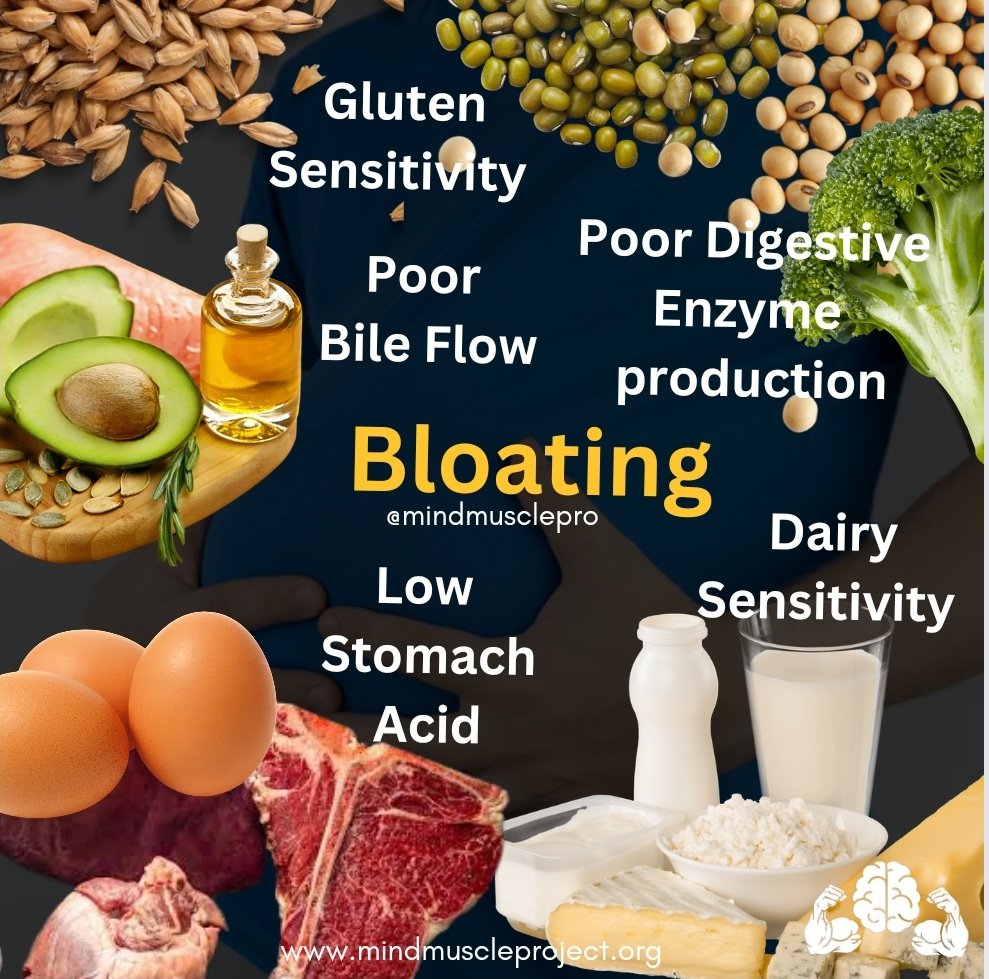Bloating is a common digestive issue that many people experience, often leading to discomfort, lower abdominal pain, and frequent gas. While there are several causes of bloating, one of the most overlooked culprits is food sensitivity—a delayed immune response to specific foods that can disrupt digestion.
In this blog post, we’ll dive into how food sensitivity contributes to bloating, common food groups that trigger these issues, and practical solutions to manage and prevent bloating.
What is Bloating? #
Bloating occurs when there’s an excessive build-up of gas in the stomach or intestines. This can result in symptoms such as:
- Frequent flatulence.
- Pain or discomfort in the lower abdomen.
- A feeling of fullness or tightness in the stomach.
Causes of Bloating #
While bloating can stem from multiple factors, such as low stomach acid, gut dysbiosis (an imbalance in gut bacteria), or even swallowing air, food sensitivity is one of the most common and often overlooked causes.
How Food Sensitivity Triggers Bloating #
Food sensitivity occurs when your body reacts negatively to specific foods, leading to inflammation, gas production, and discomfort. If you notice bloating only after consuming certain foods, it’s a sign that food sensitivity may be the culprit.
Common Food Groups That Contribute to Bloating #
Here are the top food groups that often trigger bloating, along with practical solutions for managing sensitivities:
1. Wheat and Wheat Products #
- Problem: Gluten sensitivity.
- Symptoms: Bloating, gas, and discomfort after consuming wheat, maida (refined flour), semolina, or bread.
- Solution:
- Eliminate wheat products and switch to a gluten-free diet.
- Opt for alternatives like rice, quinoa, or gluten-free flours (e.g., almond or coconut flour).
2. Dairy Products #
- Problem: Casein sensitivity or lactose intolerance.
- Symptoms: Bloating, diarrhea, or stomach cramps after consuming milk, cheese, or yogurt.
- Solution:
- For lactose intolerance, switch to lactose-free milk or plant-based options like almond milk or coconut milk.
- For casein sensitivity, try A2 milk or completely eliminate dairy from your diet to see if symptoms improve.
3. Red Meat and Eggs #
- Problem: Low stomach acid.
- Symptoms: Difficulty digesting protein-rich foods like meat or eggs, leading to gas and bloating.
- Solution:
- Increase stomach acid production through the right diet and supplements (e.g., apple cider vinegar or betaine HCl).
- Eat smaller portions of protein-rich foods to ease digestion.
4. Legumes, Lentils, and Cruciferous Vegetables #
- Problem: Presence of oligosaccharides (complex sugars) that are poorly digested, leading to fermentation by gut bacteria and gas production.
- Common Foods: Beans, lentils, broccoli, cabbage, and cauliflower.
- Solution:
- Use traditional preparation methods like soaking, sprouting, or fermenting to reduce oligosaccharide content.
- Add digestive spices like cumin or fennel to your meals to aid digestion.
5. Fatty Foods #
- Problem: Poor bile flow, which impairs fat digestion.
- Symptoms: Gastric discomfort or bloating after eating high-fat meals.
- Solution:
- Reduce the amount of fat consumed in a single meal.
- Spread out fat intake throughout the day to allow your body to adapt.
Identifying the Culprit: Tracking Your Diet #
Since foods are rarely eaten in isolation, it can be tricky to pinpoint the exact cause of bloating. For example, if you feel bloated after eating roti with eggs or meat, it could be due to the roti (gluten) or the protein. However, myths surrounding protein often lead people to incorrectly blame it.
How to Identify Trigger Foods: #
- Keep a Food Diary: Track your meals and symptoms for at least two weeks.
- Record Patterns: Note when bloating occurs and identify common food items consumed.
- Elimination Test: Remove suspected foods from your diet and reintroduce them one at a time to confirm sensitivities.
Final Thoughts: Managing Bloating and Food Sensitivity #
Bloating can significantly impact your quality of life, but identifying and managing food sensitivities can help alleviate discomfort. By understanding how certain foods affect your digestion and taking steps to improve their preparation or avoid them altogether, you can regain control over your gut health.
Quick Tips to Reduce Bloating: #
- Opt for gluten-free grains if wheat is a problem.
- Choose lactose-free or plant-based dairy alternatives.
- Use preparation techniques like soaking or sprouting for legumes and lentils.
- Consume smaller, balanced meals to avoid overloading your digestive system.
- Incorporate digestive spices like cumin, fennel, or ginger into your meals.
If bloating persists despite dietary adjustments, it may be worth consulting a healthcare professional to rule out underlying conditions like IBS, SIBO, or other digestive disorders.





